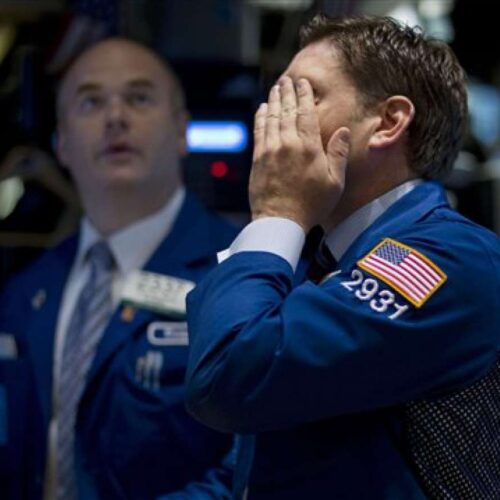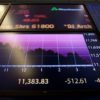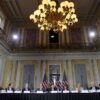Introduction
In its first report to Congress, the all-star team made up of Washington’s top financial regulators recently warned that the United States faces potential losses connected with the European debt crisis.
Any assumptions of market stability, the Financial Stability Oversight Council said, should be met with “a heavy dose of skepticism.”
The council’s warning hit home on Thursday when the Dow Jones Industrial Average plunged nearly 513 points – the biggest tumble in the financial markets since the 2008 financial crisis — partly on fears the global debt crisis may hammer Italy and Spain into default. The European Union has already given financial aid to member countries Greece and Ireland, and some experts worry that additional rescue packages for Italy or Spain – or both – could be more than the EU can handle.
Other financial markets also reacted as gold briefly hit a record high and crude oil prices dropped $5 a barrel.
“We are continuing to be bombarded by worries about the global economy,” Bill Stone, chief investment strategist at PNC Financial, told the Associated Press.
The drop in the stock market represented a decline of more than 4 percent in the Dow for the day, the steepest point decline since Dec.1, 2008. During the past two weeks, the Dow has tumbled more than 10 percent.
Shares in some of biggest U.S. banks – Citigroup, Goldman Sachs Group Inc., Morgan Stanley and Wells Fargo & Co. — fell around 6 percent in Thursday trading. JPMorgan Chase & Co. shares were somewhat less battered, closing down less than 5 percent, while Bank of America Corp. fell a steeper 7 percent.
Institutional investors which sold shares in the stock market moved so much money into cash accounts at Bank of New York that on Thursday the bank said it would begin charging some clients a 0.13 percent fee to hold their cash.
“In the past month, we have seen a growing level of deposits on our balance sheet from clients seeking a safe-haven in light of the global interest rate and credit environment,” the bank said in a statement to The Associated Press.
“Investors are deciding that now is the time to take risk off the table,” said Brian Gendreau, market strategist for Cetera Financial Group. Gendreau said that some investors are now wondering whether stocks will have a prolonged slump similar to the aftermath of the Great Depression.
The first annual report issued by the Financial Stability Oversight Council, which is led by Treasury Secretary Tim Geithner, was largely ignored when it was released on July 26 with its wary assessment of global economic forces.
“The impact on the U.S. financial system of events in Europe depends on how the peripheral European sovereign debt crisis evolves and on the resilience of U.S. financial institutions and markets. If the crisis, now affecting Greece, Ireland, and Portugal, were to intensify significantly or spread more broadly across the euro area, then the impact on the U.S. financial system would be greater,” the report said.
“[Regulatory] supervisors have for some time been working with U.S. financial institutions to improve their ability to withstand a variety of possible financial contagion stress scenarios emanating from Europe,” it said.
The council was created by the Dodd-Frank financial reform law with the mission to identify “emerging threats to the stability of the U.S. financial system.” That authority includes recommending new regulations for big banks, as well as important non-bank financial institutions, but the law is not clear about what else the council is permitted to do in times of crisis.
Treasury Department spokesmen were not immediately available to respond to iWatchNews questions.
Read more in Inequality, Opportunity and Poverty
Finance
As housing crisis festers, mortgage servicers spend $8 million on political contributions
Finance
Stock market plunge shows need for tough oversight of financial system, reformers say
Critics of Dodd-Frank law say it’s too costly and hurting U.S. economy






Join the conversation
Show Comments